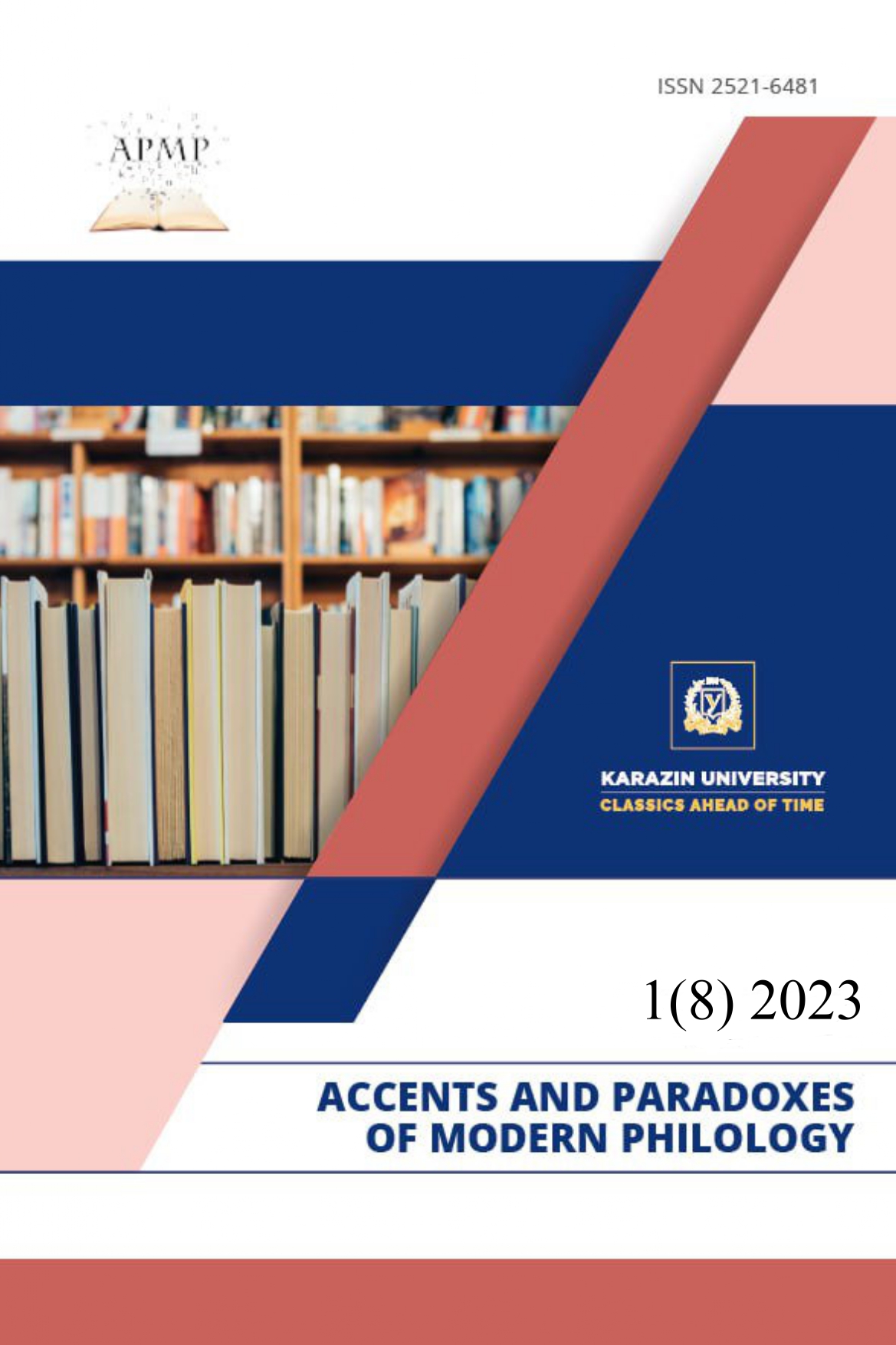SELF-IDENTITY CONFLICT IN INTERNATIONAL RELATIONS (on the example of the novel « Ni Ève, Ni Adam » of Amélie Notomb)
Abstract
The article is dedicated to Amélie Nothomb, a Belgian writer who became known throughout the world thanks to her autobiographical novels. This collection allows the reader to explore the life and adventures of the novels' main character, Amélie. In the work it was possible to research and analyze the meaning and events of each of these novels, special attention was paid to the novel "Neither Eve nor Adam". This novel served as an example illustrating many problems that can happen to lovers in international relationships. Using the example of this novel, the work explored the main problems and advantages of relationships with people representing other countries: what might be the risks and why it is still worth trying if a no one has the ability and desire to do so. The novel, in turn, helps each reader make a final decision, its pages describe in detail many everyday trifles with which the main characters had to live, in addition, the author emphasizes his own "I" , which can be easily lost. , or even lost, if you only set one goal: to merge as quickly as possible with a foreign culture. Finally, it was possible to search for the Ukrainian translation of the original novel on the pages of the work. The fragments of the novel that, in my opinion, best reflect the daily life, life and relationship of Amélie and Rinri were also chosen for translation. Through the analysis of the translation of this novel, we can understand exactly how the original is perceived by a French-speaking reader, and the translation by a Ukrainian reader.




